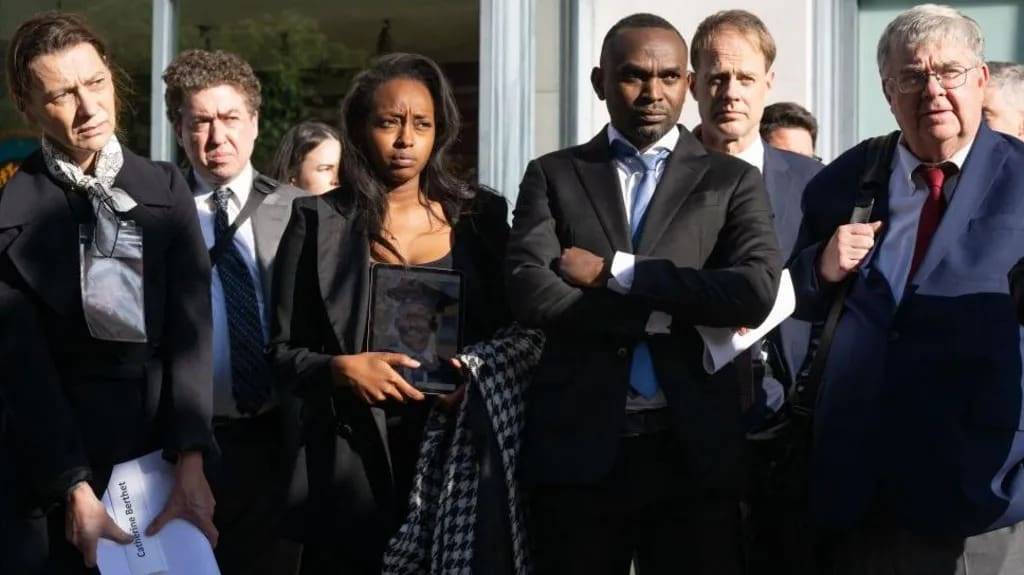Boeing has agreed to plead guilty to a criminal fraud conspiracy charge after the U.S. Department of Justice (DoJ) determined the company violated a previous agreement meant to reform its practices following two tragic crashes involving its 737 Max planes, which resulted in the deaths of 346 individuals.
As part of the settlement, Boeing will pay a criminal fine of $243.6 million (£190 million). However, the families of the deceased have criticized this arrangement as a “sweetheart deal” that allows the company to escape full accountability. One family member described it as an “atrocious abomination.”
This settlement now awaits approval from a U.S. judge. By pleading guilty, Boeing aims to avoid the public scrutiny of a criminal trial, which the victims’ families have been advocating for.
The company’s reputation has been under fire since two nearly identical crashes involving 737 Max aircraft occurred in 2018 and 2019, leading to the global grounding of the plane for over a year. In 2021, Boeing was charged with conspiracy to defraud regulators, alleging it misled the Federal Aviation Administration (FAA) about its MCAS flight control system, which played a crucial role in both incidents.
Initially, Boeing was granted a deal that allowed it to avoid prosecution if it paid a penalty and successfully completed a three-year period of increased oversight. However, a recent incident involving a door panel blowing out on a plane operated by Alaska Airlines raised fresh concerns about Boeing’s safety practices, prompting a renewed investigation.
The plea represents a significant blow to Boeing, which is a major military contractor for the U.S. government and one of the world’s leading manufacturers of commercial jets. It is uncertain how this criminal record will impact the company’s future contracting opportunities, as government regulations typically bar firms with criminal records from bidding, although waivers can be granted.
Paul Cassell, a lawyer for some victims’ families, expressed his discontent with the settlement, stating, “This sweetheart deal fails to recognise that because of Boeing’s conspiracy, 346 people died.” He urged the judge to reject the plea and allow for a public trial to ensure all facts are presented fairly.
Zipporah Kuria, who lost her father in one of the crashes, called the plea an “atrocious abomination,” expressing disappointment that the DoJ did not take more substantial action. Ed Pierson, a former senior manager at Boeing and now the executive director of the Foundation for Aviation Safety, echoed these sentiments, criticizing the deal as a failure to hold individuals accountable.
The DoJ clarified that the deal does not grant immunity to individuals and only pertains to corporate actions prior to the crashes. In 2018, a Lion Air 737 Max crashed shortly after takeoff, killing all 189 on board, followed by an Ethiopian Airlines crash that resulted in 157 fatalities.
Boeing’s previous agreement in 2021 included a $2.5 billion settlement, which encompassed a $243 million criminal penalty and $500 million allocated to a victims’ fund. Families were outraged, as they were not consulted about the terms and demanded a trial for the company.
Recent developments have indicated that senior staff at the DoJ recommended pursuing prosecution, as Senator Richard Blumenthal remarked on the “near overwhelming evidence” for such action. However, the legal complexities surrounding the case led prosecutors to consider the plea deal as a preferable route.
Mark Forkner, a former Boeing technical pilot, was the only individual to face criminal charges in relation to the incidents but was acquitted by a jury in 2022, with his defense arguing he was being unfairly scapegoated.
Mark Cohen, a professor emeritus who studies corporate punishment, noted that prosecutors often favor plea deals to avoid the uncertainties of trial, even if it means accepting less stringent penalties.
Boeing has committed to investing $455 million in compliance and safety programs and will be subject to oversight from an independent monitor for three years as part of the plea deal.
Additionally, the company has faced scrutiny from the FAA, which recently ordered inspections of 2,600 737 planes due to reports of oxygen generators potentially shifting out of position, posing a risk if cabin pressure is lost.

